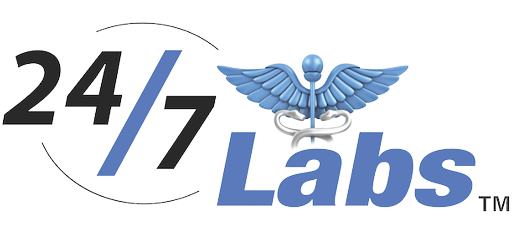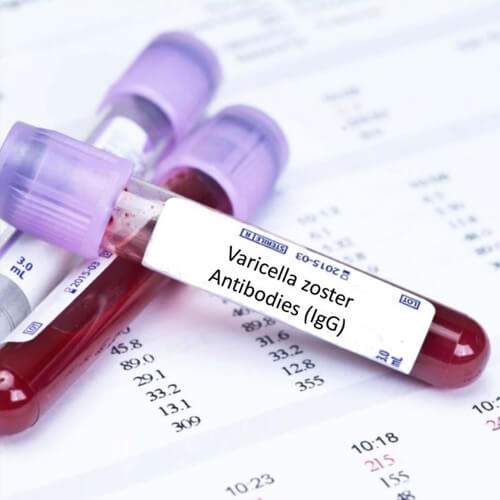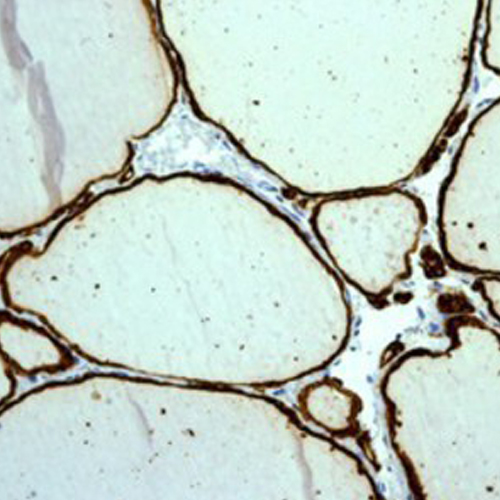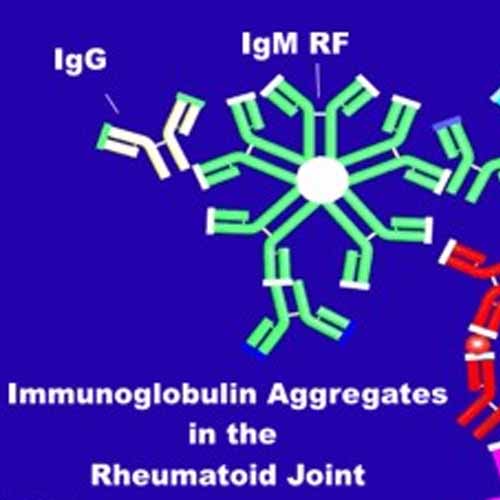Routine Health Testing Tampa
- Home
- Routine Health Testing

24-7Labs Routine Health Testing
When it comes to American healthcare today, it is far from a perfect system. From costly procedures to insurance complications and more, many factors can prevent U.S. residents from seeking the proper health testing. In turn, health issues can go unnoticed until they become more serious, potentially life-threatening issues.
24-7Labs understands these concerns and answers them with an easy way for anyone to take their health into their own hands. Our fully democratized, comprehensive routine health testing services provide fast and convenient medical laboratory testing for various medical issues, including allergies, basic wellness, pregnancy, heart health, men’s and women’s health, diabetes, hormones, menopause, thyroid issues, DNA, and more.

How Does 24-7Labs Routine Health Testing Work?
24-7Labs is accredited by the College of American Pathologists (CAP) and the American Association, also holding a certification from the Clinical Laboratory Amendments of 1988 (CLIA). If you want routine health testing done for any reason, 24-7Labs has you covered. Not only with the appropriate health testing services, but also a comfortable and private experience on your schedule. The experts at our labs conveniently located in Tampa, FL is ready to run testing when you are - simply set up a consultation today to get the process rolling.
Booking Consultation
If you’re interested in routine health testing, you must first set up a consultation so we can learn about your concerns and which testing you’d like to run. From there, we can plan accordingly and get you set with a prompt appointment.

24-7Labs Routine Health Tests
When you hear the phrase routine health testing, you likely assume it to be limited to things like diabetes, anemia, pregnancy, and the like. However, 24-7Labs understands that your health needs go beyond that. That’s why we are happy to offer a diverse array of health testing services, encompassing everything from DNA and COVID to STD and drug/ETG testing. Below is the list of routine health tests offered at 24-7Labs.
- Drug and ETG Testing
- STD Testing
- Covid-19 Testing
- Hormone Testing
- Allergy Testing
- Thyroid Testing
- Diabetes
- Parasitic Testing
- Heart Health
- Men’s and Women’s Health
- Fertility and Pregnancy Testing
- Osteoporosis
- Cancer Testing
- Blood Testing
- Physical Screening
- Fatigue Health Testing
- And Much More…
Legal DNA Testing
$319
Informational DNA Testing
$219
Test results within
3-5 days

Schedule a Test
Simply click schedule an appointment. You can select a day and time that is convenient for you. You’ll receive an email/text or even a phone call confirmation of your booking.

Visit Our Testing Location
Our testing is conveniently located. We offer a drive-up facility where you never have to get out of your house. Our trained technicians will come to you.

Get Tested
You can order a at home testing kit, which an be mailed back to us and we would provide the most accurate results. The process keeps you safe and also helps you avoid any public or rush.

Receive Results
Since you have booked the appointment, we have ensured the quick in and out testing services for you, now que or wait time. When results come in you will receive a secure email from us.
24-7Labs Routine Health Testing Services
Also known as 25 hydroxy vitamin D2, vitamin D25 is the vitamin D you absorb from foods (or supplements) containing plant vitamin D. The vitamin D25 test measures your D25 levels to determine whether there is a deficiency. Low levels of D25 can indicate that you’re either eating an unbalanced diet, your intestines aren’t absorbing the vitamin properly, or you’re not getting enough sun exposure.
These two parts of the B complex of vitamins work together with vitamin C to produce new proteins. The vitamin B12 and folate test measures the levels of these vitamins in the liquid portion of the blood. Low levels of these vitamins can indicate anemia, resulting in symptoms like weakness, fatigue, lightheadedness, shortness of breath, and more.
The Varicella-Zoster Virus (VZV) causes chickenpox. And once it is reactivated, even decades in the future, shingles can occur. The varicella zoster V A/B IgG test is used to detect antibodies in the blood for potential immunity while evaluating the chances of reactivating a VZV infection later.
This waste product found in the blood is formed when the body breaks down purines – a chemical found within the body. By testing your levels of uric acid, we can help diagnose various issues ranging from diabetes to obesity and excess alcohol intake.
This type of protein is found in the muscles of your heart and isn’t typically found in the blood. When the heart muscle becomes damaged, troponin is sent into the bloodstream, increasing as the amount of damage increases. By testing these levels, you can evaluate and monitor your overall heart health.
This protein works by binding iron and transporting it within the body. As the main carrier of iron in the blood, it’s vital that your levels remain steady. Too much transferrin in the body indicates low iron and a possible iron deficiency anemia.
Thyroid peroxidase (TPO) is an enzyme that is typically found in the thyroid gland. It plays a vital role in the production of thyroid hormones. If a large amount of thyroid peroxidase antibodies are discovered, you might have Hashimoto’s disease or Grave’s disease.
The rheumatoid factor test is used to measure how much rheumatoid factor exists in your blood. Rheumatoid factors or proteins produced by the immune system that often attack healthy body tissue are typically associated with various autoimmune diseases such as Sjogren’s syndrome.
The kidneys serve a crucial function as healthy kidneys effectively remove waste from the body. The renal function or kidney function test is used to evaluate how well the kidneys are performing, as several conditions can affect kidney function, including diabetes and high blood pressure. This test can diagnose such conditions as well as rule out infection.
This protein produced by the liver is one of several factors that assist in helping blood clot appropriately. The prothrombin time test (PT) measures how long it takes for a clot to form within a blood sample and the INR is a calculation used to determine your results. This test can help determine the reason for abnormal clots, unusual bleeding, liver problems, and more.
Prolactin is a hormone that is released from the anterior pituitary gland and it is important as it stimulates milk production following childbirth. Too much prolactin can prevent the release of an egg in the menstrual cycle and cause osteoporosis in females while decreasing sperm production in males. Lower-than-usual levels of prolactin in childbirth can additionally signify hypopituitarism.
A partial thromboplastin time (PTT) and prothrombin test (PT) test evaluate how long it takes for your blood to clot accordingly. Measuring these levels can help determine whether you have a bleeding or clotting problem.
Magnesium is a necessary nutrient for a healthy body. It regulates muscle and nerve function as well as blood sugar levels and blood pressure. Depending on your age and sex, the recommended amounts vary. When abnormal magnesium levels are detected, that can suggest adrenal or kidney issues as well as diabetes, dehydration, and more.
A lipid profile or cholesterol test is a blood test used to measure the amount of cholesterol and triglycerides (a type of fat in the blood) in the blood. This test is important as high cholesterol and triglyceride levels can increase your risk of heart disease.
This pancreatic enzyme is a catalyst for the breakdown of fats into fatty acids and glycerol or other alcohols. The blood lipase test is used to help diagnose and monitor cases of chronic pancreatitis and other disorders involving the pancreas.
Immunoglobulins are the most common antibody that is found within the blood and various bodily fluids. Their job is to protect the body from bacterial and viral infections. High immunoglobulin levels can indicate allergies, chronic infections, various autoimmune disorders, liver disease, and more. Low levels can indicate kidney disease, diabetes, and a weakened immune system.
A homocysteine test is a blood test that is used to diagnose vitamin B6, B9, and B12 deficiency. Elevated levels of this amino acid can indicate an increased risk for cardiovascular disease.
The HLA-B27 protein is a human leukocyte antigen found on the surface of white blood cells. It is tested for to confirm the diagnosis of various conditions like ankylosing spondylitis, reactive arthritis, inflammatory bowel disease, and psoriatic arthritis.
The triiodothyronine hormone is made by the thyroid to help with the body’s metabolic rate, muscle control, heart and digestive functions, brain development and function, and bone maintenance. This test can determine the amount of free T3 in your blood as higher levels can indicate hyperthyroidism while lower levels indicate hypothyroidism.
Thyroxine is the primary hormone dispersed into the bloodstream via the thyroid gland. This hormone plays a vital role in heart and muscle function, digestion, bone maintenance, and brain development. The free T4 test measures the amount of free T4 in the blood as irregular levels can indicate anything from an overactive thyroid to autoimmune disorders and hypothyroidism.
This routine test measures the body’s concentration of white blood cells, red blood cells, and platelets. It is useful in diagnosing anemia, various infections, leukemia, bleeding problems, and more.
This set of 14 tests is a routine screening that measures electrolyte levels like sodium and potassium in addition to protein and glucose levels to measure the function of the kidneys and liver.
TSH is a hormone produced by the pituitary gland that can be evaluated to inspect thyroid function, abnormalities, and disease.
Using an analysis of the urine, we’ll screen for kidney disease, high blood pressure, liver disease, and more.
Measuring cholesterol and lipid levels can help determine the risk of heart disease and heart attacks as well as peripheral vascular disease and stroke.
Primarily produced in the ovaries, this hormone can be measured to help determine whether ovulation is occurring, what issues are causing infertility, the risk of miscarriage, the existence of cancer, and more.
Estradiol is a vital form of estrogen that, when measured, can provide insight into ovarian function.
FSH is produced by the pituitary gland and works by controlling the production of eggs. Measuring its levels can help evaluate a woman’s egg supply, ovarian function, and menstrual issues.
This hormone is produced by the pituitary gland and its levels can be used to diagnose pituitary disorders, menstrual irregularities, and the cause of fertility in women.
This hormone is produced in the adrenal glands and measuring its levels can help detect tumors, cancer, and more. Too much DHEA-S in women can cause masculine characteristics like facial hair, acne, and increased muscle mass.
Using an analysis of the urine, we’ll screen for kidney disease, high blood pressure, liver disease, and more.
FSH is one of the gonadotrophic hormones and it has different purposes between the sexes. In women, it helps regulate the menstrual cycle while stimulating the growth of eggs in the ovaries. In men, the follicle-stimulating hormone helps to control the production of sperm. Abnormal FSH levels can have an array of effects, including menopause, Turner syndrome, and primary ovarian insufficiency.
This soluble protein is present in the blood plasma and is vital in the production of fibrin with the enzyme thrombin. Fibrin is essential because it binds together platelets and plasma proteins in a hemostatic plug or bloodclot. High levels of fibrinogen can indicate an increased risk of bloodclots that can travel to vital organs and result in damage. Alternatively, low levels of fibrinogen can indicate malnutrition or liver disease.
Ferritin is a blood protein that contains iron. If a ferritin test indicates lower than normal levels, that can mean your body’s iron stores are low and you could be anemic. Higher than normal levels suggest the body has a condition that causes the body to store excess iron. In turn, you may be facing anything from rheumatoid arthritis to liver disease and inflammatory conditions.
These DNA-less protein antigens are extractable from cell nuclei through the use of phosphate buffered saline. The extractable nuclear antigen antibodies panel is used to detect the existence of autoantibodies within the blood that respond to proteins located in the cell nucleus. Positive results indicate the presence of an autoimmune disorder.
Estrogen is a steroid hormone that promotes both the development and maintenance of feminine characteristics on the body. This includes reproductive health like menstruation, puberty, menopause, and pregnancy. High levels of estrogen can result in irregular periods, fatigue, and weightgain in women, and breast tissue growth, infertility, and difficulty maintaining an erection in men. In women, low levels of estrogen can make it difficult to conceive and could signify the start of menopause.
Estradiol or E2 is a form of estrogen produced by the ovaries and it plays a vital role in the development of the female reproductive system. In men, E2 is secreted in moderate amounts via the testes. When one has abnormal levels of estradiol in their body, it could indicate menstrual problems, ovarian tumors, gynecomastia, breast cancer, and menopausal symptoms.
CCP antibodies are created by the immune system and they can sometimes mistakenly attack healthy tissue within the body. With a cyclic citrullinated peptides antibody test, we’ll determine whether you’re suffering from rheumatoid arthritis (an autoimmune disorder that causes the body to attack healthy cells within the joints) as well as the degree of its severity.
This protein is created in the liver and is used to indicate inflammation. During periods in which the body has a bacterial infection, the level of c-reactive proteins within the body increases. In turn, high levels of CRP are a sign of acute inflammation and infection, injury, or disease.
Cortisol, also known as nature’s built-in alarm system, is the body’s primary stress hormone. It is created by the adrenal glands and it works in unison with other parts of the brain to help control your mood, fear, and motivation. Additionally, it manages how your body uses fats, carbs, and proteins, reduces inflammation, and regulates blood pressure. While high cortisol levels can result in high blood pressure and bone loss, low levels can cause fatigue, weight loss, and decreased appetite.
Our comprehensive metabolic panel (CMP) measures 14 substances within the blood, providing useful information about the body’s metabolism and chemical balance. Irregular levels of these substances can indicate several issues ranging from liver and kidney problems to acid and base balance, blood protein, and blood sugar problems. The CMP tests for:
- Glucose
- Calcium
- Sodium, potassium, chloride, and carbon dioxide
- Albumin
- Total protein
- ALP (alkaline phosphatase)
- ALT (alanine transaminase)
- AST (aspartate aminotransferase)
- Bilirubin
- BUN (blood urea nitrogen)
Coenzyme Q10 or CoQ10 is an antioxidant produced naturally by the body that is used by the cells for growth and maintenance. The coenzyme Q10 test is used primarily for the purpose of diagnosing coenzyme Q10 deficiency and mitochondrial disorders. Low levels of CoQ10 can cause intellectual disability, abnormal eye movements, vision loss, poor muscle tone, and seizures.
Celiac disease is a serious autoimmune disease occurring in those that are genetically predisposed. Also known as a gluten allergy, celiac disease causes the sufferer to incur damage to the small intestine following the ingestion of gluten. The celiac disease A/B screen is used to detect autoantibodies in the blood that were produced as a result of the immune response.
Carcinoembryonic antigens (CEA) are found in high levels in the tissue of a developing fetus and in very low levels in adults. When abnormal levels of this nonspecific biomarker are detected in adults, it may be a sign of some form of cancer, including colon, rectum, prostate, lung, ovary, liver, or thyroid. Alternatively, high levels can also indicate things like cirrhosis and emphysema.
Candida is a type of yeast that can result in candidiasis – a fungal infection that can cause various infections. The Candida virus A/B IgG test is the most accurate way to screen for a candida infection and when all three antibodies are detected, locating the infection is also possible.
CA 125 is a type of tumor marker found in the blood. The cancer antigen 125 test measures the amount of CA 125 in the blood to determine whether you have a condition that is cancerous. More often than not, this includes ovarian, endometrial, peritoneal, and fallopian tube cancer. If the condition appears to be non-cancerous, more testing may be required to determine your diagnosis.
Antinuclear antibodies (ANA) are antibodies that target normal proteins within the nucleus of a cell. A negative ANA indicates that there are no autoantibodies existing within the body. A positive ANA reading means means the antibodies were found and could be a sign of anautoimune disorder.
Anti-ENA or extractable nuclear antigens are protein antigens that do not contain DNA. This test uses a grouping of antibodies to search for mixed connective tissue damage, various forms of lupus, and Sjogren’s syndrome.
This enzyme or special protein is produced by your pancreas and salivary glands and it helps the body digest carbohydrates. While a small amount of amylase is normal within the blood, too much or too little can be a sign of pancreatic or salivary gland problems.








